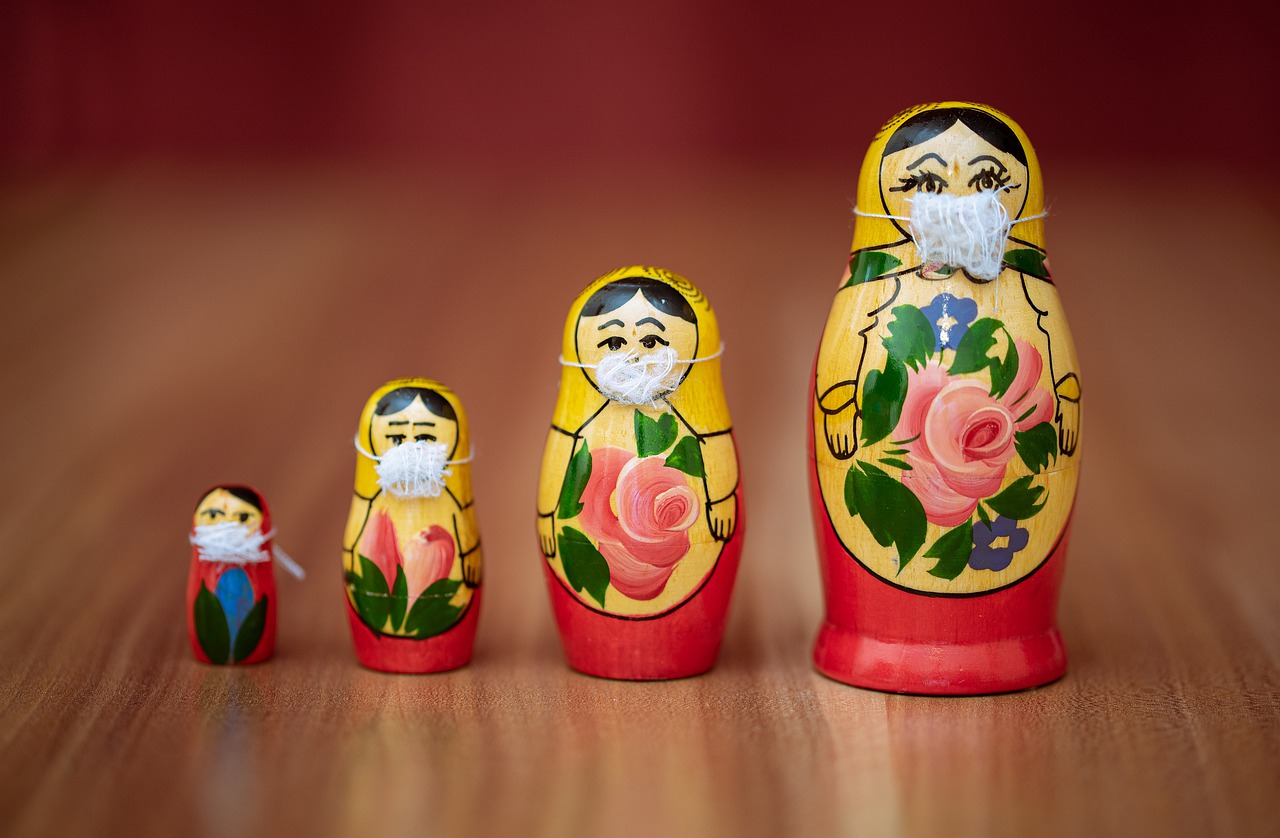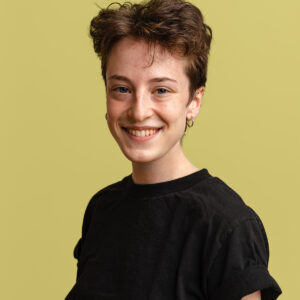Welcome to the Jewish Queeries Series, an advice column by and for Queer Jews through New Voices Magazine! You can submit your own questions for queer Jewish advice by clicking here. Stay tuned – your question may be chosen by our columnists.
My Jewish mother wants grandchildren desperately but I’m a non-binary lesbian who shudders at the thought of pregnancy and helped raise my sister, so I don’t want kids! How do I break it to her? She insists my brother’s kids will be under the domain of my (potential) sister in law’s mother and even though my younger sister is quite young, says she’s asking in advance so that when my younger sister graduates high school she won’t have an empty nest… help!
Thanks for writing in. I could begin this column with a thorough examination of the varied paths one could pursue to be a parent as a non-binary lesbian — it’s an important topic! That discussion surely could fill up my word-count for this column. I could go into detailed hypotheticals on each avenue of conception as well as picking apart the reasons your mother gives you: patriarchal ideas about your brother’s “domain,” you and your sister’s age, the prospect of an empty nest, whatever! But I have no interest in any conversation on the numerous ways you could be a parent as a non-binary lesbian. Here’s the thing: not wanting to have children is a perfectly acceptable reason. That will always be a good enough reason.
With this in mind, it bears mentioning that accepting your very good reason will be beneficial to both parties in this scenario: you and your mother. First, let’s focus on you. This is not necessarily a dilemma to convince your mom to see things from your perspective or even to agree with you. You need to be able to identify your own needs and respect them, even if that means prioritizing them over your mom’s wants.
You do not need to justify your reason for not wanting children to your family and you don’t need to do the mental gymnastics of justifying it to yourself, either. Once you are comfortable naming and honoring that need, the whole question reorients itself: How do you discuss and stick to your boundaries around your mom?
Accepting your decision and respecting your boundaries is beneficial to both parties involved. It goes without saying that your mother would also be happier if she did not continually set herself up for the disappointment of hearing again and again that you don’t want kids. Unfortunately, her acceptance of your choice or respect for your boundaries is out of your control. But you do have control over your own certainty about what’s best for you.
If this is an option, the easiest and most concise way to address this topic is to set aside time to have a clear conversation with your mother, laying out your needs. Coming out to your mom or disclosing any other personal information is not required to do this. The conversation could veer in a direction where you discuss why it is so important to mom to have grandchildren. Alternatively, the conversation could be a dead-end. In that case, it may be more productive to set another boundary on discussing you having children at all.
It’s not uncommon for Jewish queers to have this particular anxiety. If we grow up in a Jewish community, we’re used to hearing the phrase “be fruitful and multiply.” The Jewish community’s fixation on this idea has led to a toxic sexual culture, especially for youth, which is explored in a recent New Voices investigation on the topic. This cultural refrain sets up a daunting expectation for any Jews who cannot or do not wish to have children for whatever reason. However, I am here to ease your anxiety; Jewish texts can be forgiving. Allow me to take some interpretive liberties.
Quick Torah study — Genesis 1:28 is the source of the famous aforementioned phrase. The full text reads, “G-d blessed them and G-d said to them, ‘Be fruitful and multiply, fill the earth and master it; and rule the fish of the sea, the birds of the sky, and all the living things that creep on this earth.’”
In addition to it being part of our religious text, I think it’s worth examining why this quote has taken on so much meaning in the Jewish community. Put simply, this quote is about solidifying a sustainable future for living things on earth. Religious conviction aside, the sentiment behind this passage has garnered more meaning for many American Jews in the wake of historical violence against the Jewish community — most notably the Shoah. There have been many times throughout history where an end to future generations of Jews was a real possibility.
Paralleling several aspects of Jewish history, there have been times when the only vision of a queer future was obscured by death. In both communities, I try to seek out the older generations that weren’t meant to be. Oftentimes, this means going to historical meeting-places for the group in question.
A few weeks ago I took a one of my semi-regular pilgrimages to the oldest gay bar in Minneapolis. Established in 1952, the 19 Bar is not a place I’d recommend for a hot single in their 20s to pick up anyone. However, it is a great spot for $3 beer, random conversations with gay visitors from rural Minnesota, and people-watching. Most people in the bar are older than us by at least 10 years. I love watching the different friend groups mingle, play pool, and refill pitchers.
While sitting on the back patio, I remarked to my friend how seeing older queer people is always such a comfort to me. When I first realized I was lesbian, before I even came out, I immediately lost whatever vision of my future self I’d been clinging on to. For me, being gay closed all doors of normalcy and grounded all high expectations of being successful in the eyes of society. Growing up, I didn’t have any gay people in my life.This wasn’t merely a result of the choices my parents made in friends — it is the consequence of the state-sanctioned neglect of the AIDS epidemic, which resulted in an entire generation of our queer elders perishing. I had no vision for what living as an adult queer person looked like, thus reducing all my remaining conceptions of a future to television static. It’s corny, but seeing old gay friend groups who have been meeting for drinks for decades always provides a little more outline for the vision of my future that I hope to color in.
This is all just a very lyrical way to say that being fruitful and multiplying has many meanings when we look at it through the perspective of queer and Jewish timelines. In the same way seeing old gays at a dive bar helps me see my future, so too does your own loyalty to yourself. In her focus on reproduction over your interests, your mother is fixated on a very specific understanding of the “multiply” aspect of the quote. In your focus on self-loyalty, it is imperative that you honor yourself — that is being fruitful. Only when your lifestyle bolsters your own well-being, will you be able to be in community with others and pass on that wellness. Broader Jewish culture will have us believe that “being fruitful and multiplying” can only exist within a heterosexual context. This culture may create the means for “Jewish multiplication” but at the cost of whose fruitfulness?
In honoring your needs by living them — not just choosing not to have children, but living truthfully as a non-binary lesbian — you are laying the groundwork for others to see a future for themselves. Not only are you creating the possibility for queer futures (be fruitful), you are also diversifying the Jewish community by living as a queer Jew (multiplicity).
You started your letter with clear knowledge of who you are and what you want. Finding identities for ourselves as queer people can be incredibly affirming. That is an important personal experience. However, I am a proponent of the idea that simply aligning with an identity is not radical enough. Sure, identifiers align us with groups and movements throughout history, but is that alone the source of healing that we deserve as queer people? Identifying as a lesbian was grounding for me, but I wasn’t able to be at peace with myself until I lived as an openly gay individual. What is radical is embodying your true self, regardless of what is expected from the rest of society. The longer your are comfortable living and asserting your boundaries as a non-binary lesbian, the more confident you will feel. Once you are able to find that internal and community support, you can share it with others and the cycle of queer and Jewish fruitful multiplication is ready to begin again.

